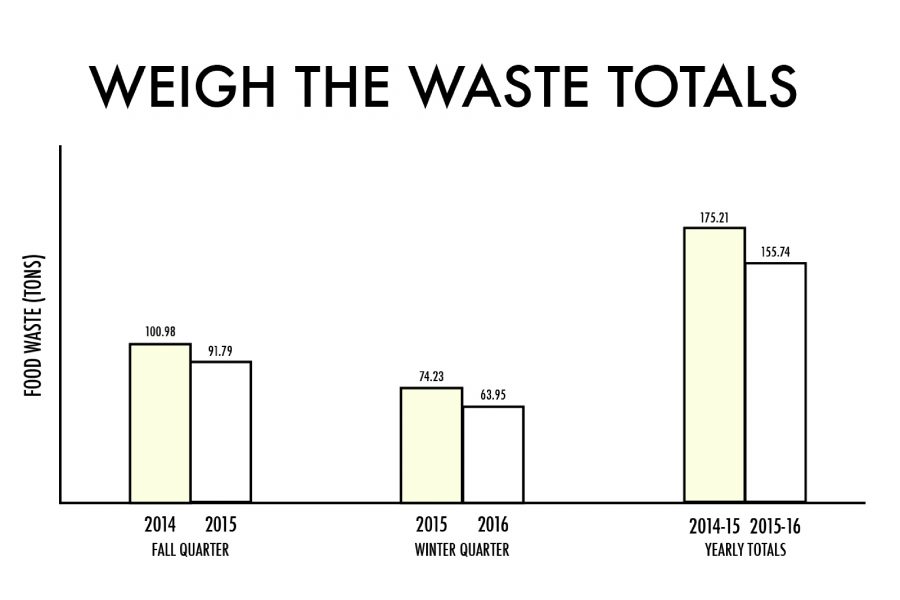Northwestern Dining adopts programs to promote food sustainability
May 5, 2016
Northwestern Dining has increased its efforts to promote sustainability through the introduction and development of several dining initiatives.
NU Dining is considering an initiative that would offer reusable bags and water bottles in C-stores. Both projects are currently under consideration, said Margot Zuckerman, a Weinberg sophomore and Sodexo sustainability intern who is working on the projects.
NU Dining is hoping to bring reusable bags to C-stores soon, but still needs more research on a project that would phase out disposable water bottles and replace them with reusable ones, Sodexo spokeswoman Rachel Tilghman said. The University announced in November plans to eliminate bottled water in C-stores by the end of this academic year.
“I hope to promote a non-throwaway culture at Northwestern,” Zuckerman said. “It’s not that much effort to make the switch to reusable water bottles rather than buy a new one each day.”
This year NU Dining unveiled a food sampling program, which lets students sample dishes before fully committing it to their plates. It is an effort to decrease the amount of food students waste, Tilghman said.
“You should never feel guilty about your food choices,” Tilghman said. “But we do want people to be conscious about what they’re taking. That’s the kind of culture shift we’re trying to make by doing the sampling.”
Additionally, Weigh the Waste is an event that measures how much waste students produce at any particular dining hall during lunch.
Under the program, the tray lines that collect used dishes and leftover food in dining halls are temporarily decommissioned. Sustainability interns instead set up tables and help students separate their waste into four different categories: liquid waste, compostable waste, non-food items and paper products.
Leftovers and trash are studied to identify which categories produce the most waste, and NU Dining uses that information to improve its operations, Tilghman said.
“We normally find that on average, Northwestern is on par with what the average American wastes, which is one-third of a pound per meal,” Tilghman said.
 Dana Choi/The Daily Northwestern
Dana Choi/The Daily Northwestern
Beyond residential dining, Northwestern Catering has begun working with clients to incorporate elements of sustainability into catered events. The Green Steps program offers to cater events using china or compostable tableware to reduce waste, said catering manager Stephanie Klafert.
“The idea is to create a zero-waste event,” Klafert said. “There are products out there that are recyclable, but compostable … goes so much further than recyclable does.”
The University’s goal is to reduce its landfill waste by 20 percent by 2020. Through developing and introducing sustainability programs in dining, NU Dining hopes to contribute to this movement, Tilghman said.
NU Dining’s sustainability programs aim to not only decrease waste, but also educate students about sustainability, said Julie Cahillane, manager of sustainability and resource management.
“Food waste is a significant portion of our waste stream,” Cahillane said. “If we want to reduce how much waste we extend to the landfill and increase our diversion rates, food waste is an obvious thing we’re going to tackle.”
Julia Doran contributed reporting.
Email: [email protected]
Twitter: @kellipnguyen

